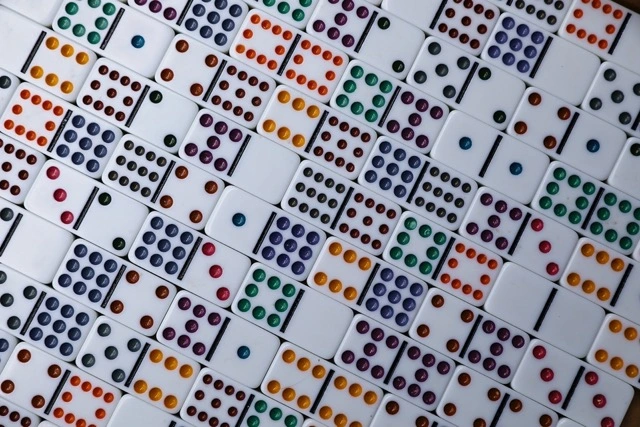Greek Numbers Made Simple: A Beginner’s Guide

Numbers are your ticket to everyday Greek—telling time, counting objects, or ordering coffee. This guide breaks down Greek numbers, from 1 to 100, ordinals, and beyond, with tables and examples to make it stick. Let’s count our way in!
Learn all about Greek numbers with our three-part YouTube series—part one’s above, and parts two and three are on our channel!Why Learn Greek Numbers?
Greek numerals pop up everywhere—hours, prices, or lists. Unlike English, they shift with gender, case, and number, making them tricky but fun. We’ll cover cardinal numbers (quantity), ordinals (order), and more.
Cardinal Numbers: 1-100
1-10
| Number | Greek | Transliteration |
|---|---|---|
| 1 | Ένα | Éna |
| 2 | Δύο | Dýo |
| 3 | Τρία | Tría |
| 4 | Τέσσερα | Téssera |
| 5 | Πέντε | Pénte |
| 6 | Έξι | Éxi |
| 7 | Επτά | Eptá |
| 8 | Οκτώ | Oktṓ |
| 9 | Εννέα | Ennéa |
| 10 | Δέκα | Déka |
11-20
| Number | Greek | Transliteration |
|---|---|---|
| 11 | Έντεκα | Énteka |
| 12 | Δώδεκα | Dṓdeka |
| 13 | Δεκατρία | Dekatría |
| 14 | Δεκατέσσερα | Dekatéssera |
| 15 | Δεκαπέντε | Dekapénte |
| 16 | Δεκαέξι | Dekaéxi |
| 17 | Δεκαεπτά | Dekaeptá |
| 18 | Δεκαοκτώ | Dekaoktṓ |
| 19 | Δεκαεννέα | Dekaennéa |
| 20 | Είκοσι | Eíkosi |
Tens (20-100)
| Number | Greek | Transliteration |
|---|---|---|
| 20 | Είκοσι | Eíkosi |
| 30 | Τριάντα | Triánta |
| 40 | Σαράντα | Saránta |
| 50 | Πενήντα | Penínta |
| 60 | Εξήντα | Exínta |
| 70 | Εβδομήντα | Evdomínta |
| 80 | Ογδόντα | Ogdónta |
| 90 | Ενενήντα | Enenínta |
| 100 | Εκατό | Ekatṓ |
Gender and Case Variations
Numbers shift with gender and case:
- 1: Ένας (m), Μία (f), Ένα (n)—e.g., Έναν άνθρωπο (Énan ánthropo, accusative).
- 3: Τρεις (m/f), Τρία (n)—e.g., Τρεις γυναίκες (Treis gynaíkes, three women).
- 4: Τέσσερις (m/f), Τέσσερα (n).
| Number | Nominative (m) | Accusative (m) | Nominative (f) | Nominative (n) |
|---|---|---|---|---|
| 1 | Ένας | Έναν | Μία | Ένα |
| 3 | Τρεις | Τρεις | Τρεις | Τρία |
| 4 | Τέσσερις | Τέσσερις | Τέσσερις | Τέσσερα |
Ordinal Numbers
In Greek, ordinal numbers double as adjectives. This means each ordinal has three distinct forms, with endings that shift based on the gender of the noun they describe—masculine, feminine, or neuter.
Note
Ordinals match gender/case like adjectives—e.g., Πρώτη γυναίκα (Prṓti gynaíka, first woman).
Masculine Ordinals
| Number | Greek | Transliteration | Meaning |
|---|---|---|---|
| 1st | Πρώτος | Prṓtos | First |
| 2nd | Δεύτερος | Défteros | Second |
| 3rd | Τρίτος | Trítos | Third |
| 4th | Τέταρτος | Tétartos | Fourth |
| 5th | Πέμπτος | Pémptos | Fifth |
Feminine Ordinals
| Number | Greek | Transliteration | Meaning |
|---|---|---|---|
| 1st | Πρώτη | Prṓti | First |
| 2nd | Δεύτερη | Défteri | Second |
| 3rd | Τρίτη | Tríti | Third |
| 4th | Τέταρτη | Tétarti | Fourth |
| 5th | Πέμπτη | Pémpti | Fifth |
Neuter Ordinals
| Number | Greek | Transliteration | Meaning |
|---|---|---|---|
| 1st | Πρώτο | Prṓto | First |
| 2nd | Δεύτερο | Déftero | Second |
| 3rd | Τρίτο | Tríto | Third |
| 4th | Τέταρτο | Tétarto | Fourth |
| 5th | Πέμπτο | Pémpto | Fifth |
Ordinal numbers indicate the rank or position of items in a sequence. Let's break it down with a fresh example:
Greek: Στη σχολική ομιλία, ο Νίκος ήταν ο πρώτος ομιλητής, η Έλενα η δεύτερη, και ο Κώστας ο τρίτος.
Romanization: Sti scholikí omilía, o Níkos ítan o prótos omilitís, i Élena i défteri, kai o Kóstas o trítos.
Translation: "At the school presentation, Nick was the first speaker, Elena was the second, and Kostas was the third."
Notice how the ordinal numbers are inflected based on gender and grammatical case in Greek. This pattern holds true for all Greek ordinal numbers.
For more insights on Greek numbers, check out our YouTube channel (opens in a new window) for some in-depth videos.
Subscribe for more free lessons
Counting in Action
Telling Time
- Μία η ώρα (Mía i óra) – 1:00 (feminine “ώρα”).
- Τρεις η ώρα (Treis i óra) – 3:00.
- Δύο και μισή (Thio kai misi) – 14:30.
Counting Objects
- Δύο βιβλία (Dýo vivlía) – Two books.
- Είκοσι μήλα (Eíkosi míla) – Twenty apples.
- Εκατό σπίτια (Ekatṓ spítia) – One hundred houses.
Prices
- Πενήντα ευρώ (Penínta evrṓ) – 50 euros.
- Τριάντα δύο λεπτά (Triánta dýo leptá) – 32 cents.
Practice Sentences
- Ένας άνθρωπος περπατάει. (Énas ánthropos perpatáei.) – One man walks.
- Τέσσερα παιδιά παίζουν. (Téssera paidiá paízoun.) – Four children play.
- Είκοσι πέντε η ώρα (Eíkosi pénte i óra) – 25:00 (formal).
- Δεύτερος στην ουρά. (Défteros stin ourá.) – Second in line.
Common Mistakes to Avoid
- Wrong Gender: Always match the gender of the numeral with the noun.
- Incorrect Declension: Pay attention to the case of the noun when using ordinal numbers.
Conclusion
Greek numbers—cardinal, ordinal, and beyond—are your everyday tools. From Ένα to Εκατό, you’re now set to count like a pro. Practice with our quiz below, and check time in greek (opens in a new window) or vowels (opens in a new window) next!


